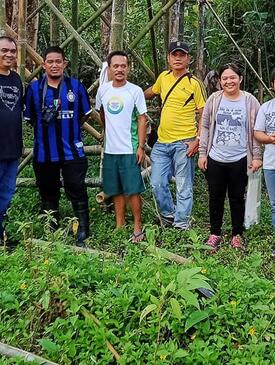Integrating Rainforestation Farming to Promote Sustainable Agarwood Production in the Philippines
Summary
Overexploitation to meet commercial demand has threatened the existence of many tree species in the Philippines. Aquilaria, which is mostly found in the forests of Visayas and Mindanao, has long been exploited elsewhere in Southeast Asia, but only recently became the target for harvesting in areas near VSU. Known as agarwood or incense wood, the species in this genus are prone to fungal infection with the fungus being used in both the Ayurvedic and traditional Chinese medical traditions. It also used to make aromatic materials for religious ceremonies in the Middle East and East Asia, as we as in the perfume industry. The Department of Environmental and Natural Resources (DENR) has made it illegal to buy, sell, collect, or transport Aquilaria, but hunters nevertheless still seek this tree, which is destructively harvested. In response to this intensive harvesting pressure, ITEEM in partnership with ELTI and RISE aims to conduct a massive education and information drive to promote the sustainable use of Aquilaria by incorporating it into Rainforestation Farming systems.
Content
Day 1
- Philippine biodiversity and ecosystem services
- Understanding the origin, biogeography, and the science of agarwood
- Interactive discussion
Day 2
- Rainforestation farming
- Geospatial tools in farm establishment and monitoring
- Interactive discussion
Day 3
- Climate-smart agro-ecological farm management
- Nursery establishment
- Farm planning


